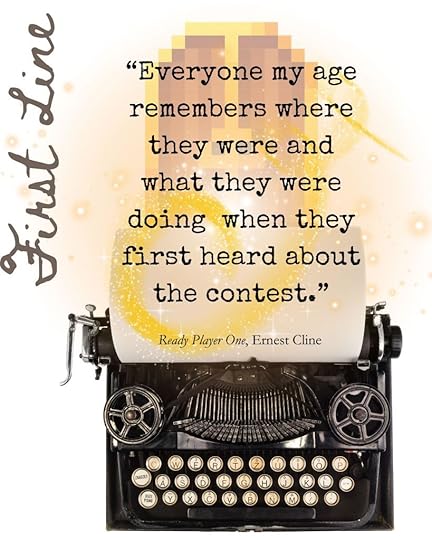Devon Trevarrow Flaherty's Blog, page 18
October 6, 2023
Quotable: Dracula
October 5, 2023
First Line: Ready Player One
October 4, 2023
Writer in the Wild: Your Friendly, Preptober Reminder
 Image from nanowrimo.org
Image from nanowrimo.orgIt’s that time of year again here on The Starving Artist and also in the writing world. Sure, I know plenty of writers don’t participate in NaNoWriMo (National Novel Writing Month)—some of you even thumb your noses at the idea—but we are supportive of Nano, so there. And I know that Nano is in November, but if you really want to do Nano right, you begin in October. So now. Or perhaps yesterday.
I have written several blogs about Nano over the years, but the quick of it is that in November every year (since 1999), now almost half a million people participate in writing a “novel” during the month, which centralizes online but includes local festivities and encouragement all over the world, blog crawls, a swag shop, stickers, your very own project page complete with an interactive goal tracker, etc. etc. “Novel,” for these intents and purposes, means 50,000 words, any genre you can think of. (There are camps in the summer where the goals are more flexible. And FYI, 50,000 words is almost never a complete novel. Technically, it is a novella, actually.)

Interested? Coming back for more? All sorts of writers including both professional and hobby writers participate, and the camaraderie is as important as the actual putting of words on the page, for many people. I actually have an excellent blog from last year about Preptober (clever, huh? I’m sure I didn’t make it up), already, so head there if you want more extensive and creative ideas. Otherwise, here’s your short-version October checklist for November’s Nano:
Decide what project you will be beginning or adding to.Do some serious work on story-planning so that you can write like the wind in a few weeks.Sign up at nanowrimo.org with your project.Connect with your local chapter(s) of Nano. Sign up for their info, as events will pop up, sometimes last-minute.Sign up for some events and put them on the calendar. Diversify between some fun things and plenty of write-ins and writing sprints.Attend a kick-off event (or events).If you haven’t done this before, maybe find a tutorial or listen to the How to Win Nano podcast.Clear your November calendar as much as possible, making the rest of life as simple as you possibly can.Branch out into fun (and yet helpful) prep, like making a playlist, watching inspirational movies, etc. Again, see THIS blog for more and more detailed ideas.On October 31, after you have gorged yourself on Halloween candy and brushed the Butterbeer from your teeth, throw on your spookiest pajamas and pull up to the laptop at midnight. (This is only one of two times per year I will suggest blue screens after 10:30.) At 12:00 exactly, go! Write! Give it 15, 20 minutes or something and then pop a melatonin and go to bed because tomorrow is Wednesday, after all (by which I meant absolutely no reference to the TV series, though I am a fan). From that point, you’ll have to make your own path through the month, grasshopper.
If you want to follow my Nano thread through the years, here it is:
Nanowrimo (2013)Livin’ La Vida Nanowrimo (2013)A Nanowrimo Update (2013)Happily Drowning in Nanowrimo (2013)A Nanowrimo Extension (2013)Goodbye, Camp Nanowrimo (2014)Nanowrimo Strikes Again (2014)The Irrepressible Nanowrimo (2015)Return to Nanowrimo (2022)Preptober Is Coming to an End, People! (2022)I Won Nano (2022)We’re Well In to Camp (2023)October 3, 2023
Writing Podcasts Reviews
The truth is, I can’t always have a book in front of my face. Sometimes I do things like drive, and reading a physical novel while driving would be dangerous. I discourage it, for the record. So, in steps podcasts. While I am not the world’s biggest fan of audiobooks, I will listen to them occasionally, though it is mostly on long road trips or when I have a migraine (quietly). I have also come up with the brilliant idea recently that I will listen to audiobooks of books that I am having a difficult time reading in the more conventional way. But most days, when I am driving or doing housework or even cooking, I will pop on a podcast. Some of these podcasts are for news purposes (like The Daily, Ted Radio Hour, Pantsuit Politics, NPR News Now…), some of them are for pure entertainment (like Wait Wait Don’t Tell Me and the sadly discontinued Ask Me Another), some of them are religious/spiritual education and food for me (like The Holy Post and Good Faith). And many of them are about writing (and reading). Or sometimes not exactly about writing (or reading), but I started listening to them in order to enhance my writing (or reading). Filling these moments of my life with some influx of writing and reading news, contemplation, and education has been meaningful for me as a writer—a writer who has a difficult time wedging a full-day’s work or industry magazine articles into most days.
For you, I have listed first the podcasts I have been listening to. But the list is kinda old at this point and needs to grow, so I also made a list of supposedly (so the internet tells me) great podcasts for writers, below. I will be trying some of these out, and I suggest that you do, as well.
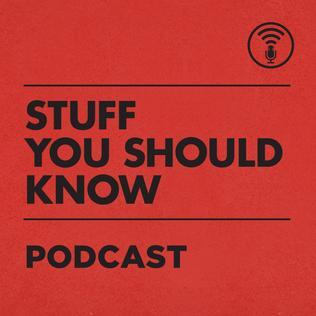 Image from Wikipedia.com
Image from Wikipedia.comStuff You Should Know – turns out this podcast is one of the top podcasts, right now. I was not surprised when looking it up, and yet it feels grassroots, which I guess many podcasts are. This one certainly feels like it started out that way, and their devoted following feels kind of grassroots too. After I received a recommendation to listen because it can spark writing ideas (since it’s about super random and interesting “stuff”), it has become one of my favorite podcasts, for sure. This is due largely to the personalities of and the interaction between the hosts, Josh Clark and Chuck Bryant. They’re gentle and curious guys who have a respect for each other, knowledge, and others that is pleasant to experience. They joke around but come across a bit geeky in the best way possible. I really don’t know how much this podcast has informed my writing, but I definitely enjoy it.
 Image from Spotify
Image from SpotifyLet’s Talk About Myths, Baby – Now, myths do inform my writing, so I understand why this informative podcast by Liv Albert, a feminist (meaning she uses an “intersectional feminist lens to [focus] where possible on amplifying the voices of women, trans, and non-binary people”) and avid curser. I do enjoy this one, but sometimes skip it, too, for a couple reasons: it is, in my opinion, a bit long-winded. Also, the swearing. Depending on who’s around when I turn it on, it can get awkward. Yes, there is that much swearing, and for what reason? I dunno. A matter of pride (no pun intended)? But I do enjoy a fresh take on revisiting the ancient myths.
 Image from Literary Hub
Image from Literary HubWrite-Minded – One of the things that bugs me about this podcast because I am super picky, apparently, is the editing between the soft voice on Grant Turner and the normal voice of Brooke Warner. Actually, it’s volume editing that bugs me about a great many podcasts, as I just get the volume set when someone is either bursting my eardrum or back out of hearing range, again. You’d think there’d be an easy way to regulate volume level. Tangent. Anyhow, a conversation between two industry peeps (of Nanowrimo and She Writes) combined with interviews with industry professionals (authors, publishers, etc.), this podcast promises to be weekly inspiration for writers. It does do a bit of keeping writers abreast of some things, but it is not complete, like a newscast, nor is it really that inspiring all the time, at least for me. I guess I find this one long-winded, as well. Still worth checking out, for sure, but though it’s recommended frequently, it’s not my favorite.
 Image from Overdue Podcast
Image from Overdue PodcastOverdue – This podcast has a pretty intriguing premise: Andrew Cunningham and Craig Getting read the books that you should have already gotten around to reading and they tell you about them. From what I can gather, usually one of them reads the book and then tells the other person about it, in turns, though both of them probably did some research before recording. Warning: these episodes are replete with spoilers, though they may sometimes warn you ahead of time. The point of the podcast is not so much a review as a book discussion, including history, their opinion, etc. I like this podcast and I enjoy the company of these two readers, but I sometimes have to skip because I intend to still read the book in question or I just have no interest in hearing about it. Though, to be fair, they make it interesting most of the time. Also long-winded, but less painfully. Perhaps I have an issue with less-punchy podcasts.
 Image from Wikipedia.com
Image from Wikipedia.comLore – Lore is a podcast that never seems to come up in my Latest Episodes (perhaps because of what time a day it drops?), so I might have only heard it once or twice. And yet, I might have decided to skip them anyway because, despite how popular this podcast is, it is also scary and I don’t do a ton of scary. A new episode is produced by Aaron Mehnke and is released each Monday, and has been for years. It is as it sounds: it explores the darker side of history and the role story takes in it. There is a Lore: Legends series that explores the perhaps-fictional side of lore.
 Image from Wikipedia.com
Image from Wikipedia.comThis American Life – This American Life was a radio show that I used to listen to with my husband on NPR and it (and some of my other favorite shows) branched out into a podcast. This American Life, like Stuff You Should Know, may be a bit of a stretch as a writer-recommended podcast, but it’s for the same reason: it might inspire a story. I have always found news articles to be rife with story ideas, and This American Life zooms in on super-interesting human interest stories, often ones that have not been told until now. There are three stories per episode, linked together by some concept. It is very interesting, indeed. It’s also extremely popular, has won about a hundred awards, and is somehow connected to the lauded Serial (see below).
 Image from Spotify
Image from SpotifyWriter’s Routine – Another one which I find sometimes obnoxious due to its volume editing, I nonetheless like this podcast. The interview series targets writers, and Dan Simpson begins every episode with questions about the writer’s actual routine, including their physical place of writing. They may get to more ephemeral topics, but I seriously enjoy hearing about how authors (and successful authors) manage their days, their work, their lives, and then what they have to say about things. It is notable that some of the authors—if you were to transpose the transcripts next to one another—disagree, but that just goes to show that Simpson doesn’t have a bias or much of an agenda besides uncovering and then documenting the writing life, one author at a time. I really enjoy this podcast too, though it can sometimes go on a bit.
 Image from The New York Times
Image from The New York TimesThe Book Review – If you have any interest in The New York Times Book Review, then this weekly podcast is one you want to follow. They talk about the latest and most anticipated books, including interviews. Though there are two voices to the show that are in my head, I didn’t see any info about them on the website because ultimately this podcast isn’t about them, but about putting a voice to the bastion of literary criticism that is the Times Book Review.
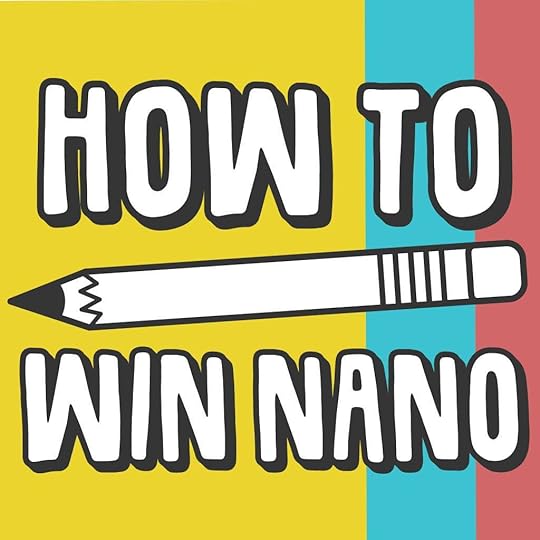 Image from Howtowinnano.buzzsprout.com
Image from Howtowinnano.buzzsprout.comHow to Win Nano – This series has been coming out in the build-up to NaNoWriMo since 2019. Running between 15 and 30 minutes per episode, the effervescent Kristina Horner and Liz Leo chat fast-paced about their own opinions and expertise at winning (and journeying through) Nano, year after year after year. (They’ve each “won” many times.) They have no official affiliation with NaNoWriMo, but I listened through all their podcasts last October, and I am tuned in to follow up through this year’s season. They can get a little off topic and informal, but I enjoy the quick, no-nonsense inspiration.
And here is the list of podcasts I have not yet tried:
Imaginary Worlds , Erik Molinsky (NPR meets speculative fiction reportage and interviewing) Atticus After Dark , Sam Slaughter and Atticus (chats with leading authors about their work)Helping Writers Become Authors, K. M. Weiland (as an offshoot of her popular writing-help books and website, giving writers new tools and helping them develop old ones) The Creative Writer’s Toolbelt , Andy Chamberlain (learning and craft, often approaching from a certain genre and sometimes featuring industry professionals)Serial, Sarah Koenig and This American Life (one story over the course of one season. There are three at this point. Very award-winning and well-loved across audiences)It’s Lit, Princess Weekes (“literary discourse” and publishing from the perspective of marginalized writers) The Writer’s Almanac , Prairie Home Productions (daily, 5-minute podcast about history in literature for that day and poetry reading) Once Upon a Time at Benington College , (a limited series about a group of friends who would become famous authors, like a modern Inklings) But That’s Another Story , Will Schwalbe (a now ended podcast that interviews influencers about the book that changed their life)Grammar Girl, Mignon Fogarty (presents the mysteries of English and unlocks tips and tricks to help master it) The Writer Files , Kelton Reid (interviews with authors about their practices and lifestyle) A Way with Words , Martha Barnette and Grant Barret (for “word nerds,” about language structure, phrases, and sayings) Write Now with Sarah Werner , Sarah Werner (meant to help real people be inspired by other real people to do some real writing every day) The Writers Panel , Ben Blacker (panel discussions and interviews, but this time focused in completely on TV and screenwriting)Deadline City, Dhonielle Clayton and Zoraida Cordova (“all things publishing” from two authors who have done it, together, more than 40 times) This Creative Life , Sara Zarr (not easily defined, basically conversations between the author-host and other authors about the writing life and work) The Creative Penn Podcast for Writers , Joanna Penn (publishing information, from the vantage point of various perspectives in a long-running podcast) The First Draft Club , Mary Adkins (overcoming writing obstacles when writing… well, anything) The Self Publishing Show , Mark Dawson and James Blatch (it’s for those who are interesting in self-publishing, but also full of tips and new ideas in the self publishing world) Kobo Writing Life Podcast , Kobo (more on self-publishing, including some things specifically for Kobo authors and some for a wider range) Between the Covers , David Naimon (writing work centered on craft but also including tools, from Tin House Books) 88 Cups of Tea , Yin Chang (focusing in on the internal life of the writer and how to survive it. Her specialty seems to be childrens and YA but it’s not limited to that) DIY MFA Radio , Gabriela Pereira (addressing the questions about writing and writing education you always wanted to ask, and strengthening your writer’s toolkit) Longform , Robert Samuels and Toluse Olorunnipa (covering the changing industry of writing and publishing in longform) The Writer’s Voice , The New Yorker (authors reading their new New Yorker fiction in their own voice) The Underground Writing Podcast , Matt Malyon (postulating that writing is for everyone and the writing process is not just for publishing, but also for exploring, healing, and hope) Writing Excuses , various(about writing craft and up-to-date industry info, these short episodes of a long-running podcast use working writers to give their advice and encouragement) The Shit No One Tells You About Writing , Bianca Marais (another toolkit podcast, but this one focusing on new writers looking to break into a very difficult and mysterious field)Supercontext, Christian Sager and Charlie Bennett (about how books, shows, and movies were made; a 4-year podcast that is not specifically for writers and “defied categorization”) The VS Podcast , The Poetry Foundation (poetry + talk show + politics) Writers, Ink , J. D. Barker, Christine Daigle, Patrick O’Donnell, J. P. Rindfleisch, Kevin Tumlinson, J, Thorn, and Zach Bohannon (a no-BS look at being a writer and what it’s really like, day to day)Unpublished, Amie McNee and James Winestock (taking your writing seriously because, though it may feel like it sometimes, you are far from alone)What Should I Read Next?, Anne Bogel/Modern Ms. Darcy (sorta like a book club, there’s a book discussion, sometimes with the author, and contemplation on what to read next) The Moth (story slams that began in 1997, you may recognize it. As a podcast, people (sometimes established authors) tell real stories about their real lives) Snap Judgment , Glynn Washington and NPR (storytelling from real life, but with a music component and bordering on poetry) Well-Read Black Girl , Glory Edim (online bookclub catering to Black women as a podcast) Phoebe Reads a Mystery , Phoebe Judge (calm, soothing readings at around 20 minutes each of mystery (and maybe other) books in installations)Written Off, Walter Thompson-Hernandez (the voices of formerly incarcerated writers) Hear the Classics , Spotify (a number of new and old literary classics for free, sometimes read by famous voices)Poetry Unbound, Padraig O Tuama (a poetry reading twice a week) The Big Gay Fiction Podcast , Jeff Adams and Will Knauss (a guide to gay authors, books, and romance, including interviews)I’m also thinking about starting a Starving Artist podcast, just to put my work here into another medium for a modern world. Like a synopsis of the week on The Starving Artist. Whuddya think? Might you listen? Is it more likely that people will listen as opposed to read a blog, these days? (I think the answer there is a solid yes, but you are entitled to your opinions.) I am also planning on re-starting a monthly newsletter. So…
October 2, 2023
Repost: Writer’s Fatigue
In the course of the interview, the interviewer and interviewee touched on the subject of writer’s block, a subject which seems never to be far from any writing conversation. In honor of the Write-Minded podcast with Gover and my new blog format (which includes reposts from so very long ago, all the way back to 2012), I am going to repost one of my original blogs about writer’s block. (I don’t believe I have any about dreams, though I heard a quote from an author lately (I can’t remember who) who said that dreams make poor story material and I tend to agree… until my last novel came to me completely in an actual dream.)
One added note: Though I’m going to hop on board with most of what I said in this original blog back in 2014, I also often say that I have experienced the ignoring of writer’s block as quite effective, meaning that I have written through a complete lack of inspiration, as painful as it may be (because, for some of us, this is a job), and was often surprised when I went back later to find that the result was often far from “uninspired,” and was often quite good. While it feels horrible as you are writing during an uninspired season, in other words, the writing you produce is quite often just as good as all that other stuff and very frequently salvageable, if not.

Dictionary.com defines writer’s block as “a usually temporary condition in which a writer finds it impossible to proceed with the writing of a novel, play, or other work.” Wikipedia defines it as “a condition, primarily associated with writing, in which an author loses the ability to produce new work or experiences a creative slowdown. The condition ranges in difficulty from coming up with original ideas to being unable to produce a work for years,” and goes on to site examples from F. Scott Fitzgerald (The Great Gatsby) to Charles M. Schulz (Peanuts cartoons).
Causes of writer’s block include:
the work itself does not work or is not conducive to being writtenthe pairing of writer and work is not a productive onedistractions (from immediate to long-term)poor work environmentphysical illnessmental illnessexternal stress or changeinternal stress, ie. pressure, fear of failure, defeatprevious work’s reception (good or bad)And now that I’ve said all that, I want to tell you what I inevitably say when someone asks me about writer’s block.
“I don’t believe in it.”
But now that I see that it has a definition, causes, and even studies, I accept that I’m going to have to re-word that for you. So here goes.
“I don’t like the concept of ‘writer’s block.’ I like to call it writer’s fatigue. Because I believe that there are roads around the issues associated with so-called writer’s block, and that most of the time those roads are quite passable (simple, accessible, and short).” I also believe that writer’s block has become a scapegoat, a handy excuse, a woe is me. No more!
What I really don’t believe in is this mystical idea that somehow the muse comes and goes and that we as writers have to sit around waiting for it and wringing our hands. Perhaps inspiration does come and go, but not only can we do things to encourage our muse (and likewise, discourage it), we can also write without it. What?!? Are you nuts?!? No, I assure you I’m not-more-than-the-average. I just believe that dealing with writer’s fatigue involves the qualities that being successful in any endeavor does: hard work, determination, commitment, perseverance, practice, self-control, and a dash of talent.
Let’s think of our solution to writer’s fatigue in two veins. The first is learning how to process what is happening to you (or me). The second is learning how to explore and generate ideas.
When you think you are suffering from writer’s block, it would be a good thing to take a look at a list of the causes, like the one above. Make a chart and write any causes you think apply to you in the left column. Be specific. (Don’t write “distractions,” write “Facebook” or “video games.” Don’t write “external stress.” Write “divorce.”) Then label some other columns, like “details,” “possible solutions,” and “actions to take.” I would encourage you to seek advice from trusted friends and possibly also to seek professional help (from an organizer to a job coach, from a self-help book to a psychiatrist to a 12-step program). You are going to have to be open and honest, even if the truth is painful. Then you’re going to have to be realistic and thorough with your solutions. Now, follow through.
Deal with it. And I don’t mean the conventional, like, “Deal with it, okay?” I don’t want you to just deal with anything, I want you to deal with it! To take that bull by the horns. To stand up and be a man or a woman. To put one foot in front of the other all the way up that mountain. And never take writer’s block laying down!
But when all that’s said and done, I think one of the simplest ways to deal with all this onslaught of writer’s block is to open ourselves up to just writing. I see this all the time when I discuss journaling with other people (including my elementary-age son). Journaling intimidates the heck out of normal people the way writer’s block scares the poo out of us writers. Why? Often because we have this convoluted, collective idea that thinking of things to write about is hard. It’s not! Thinking of Shakespeare-worthy stuff to write about is hard. But actually writing something down is almost as easy as thinking. I encourage journalers to grasp at whatever is in front of them. What do you like? What would you like to complain about? What did you do today? What are you doing later? What is sitting on the table in front of you? What’s in your pocket? What’s your favorite whatever? Use idea journals, idea books, idea websites. Have a chat with someone about what you’re writing and where you’re stuck. Go for a walk. Take a shower. Drive a car. Take a writing class or go back to school. Read writing magazines and books which specifically teach you how to generate ideas and also how to work with the ones you already have.
The world will never run out of things for each of us to write about. The problem is getting ourselves to let go. We have to learn to let go of the idea that the next sentence we write will be part of the final product. It will be part of something–but that something may only be the process, the journey. Or maybe it will become part of the final product once it is tamed and molded. The point is to get something on the page. You can write junk (you’d be surprised), just keep writing, and do it worry-free.
So here are our thoughts when we face writer’s fatigue:
Process the causes and their solutionsLearn how to explore your current ideas and generate new onesEmbrace the transient nature of your next sentence, therefore removing the great pressureAfter all, your blockage is not insurmountable, it just needs navigating.
September 30, 2023
Writing Prompt: Eavesdropping
Go to a public place, like a coffee shop or a garden. Eavesdrop on people’s conversations. Takes notes or sketch and when you have an idea, write the person’s story (even if it’s just a snapshot moment). You can also do this around your own home if you live with any people or even pets. Observe and eavesdrop until there is something you can guess at and extrapolate.
Similarly, interview someone by chatting with them about random things. Have them tell you a story from their life, no matter what it is. Use their hobbies or interests. Then ask questions to get the details about their hobby or interest and the story. Then leave them and write the story, fictionalizing as much as you want to. (You’ll want to have full disclosure and get their permission to run with their story before you write this, in case it goes beyond your journal and makes it to a short story or even novel.)
September 29, 2023
Quotable: Strange Case of Dr. Jekyll and Mr. Hyde
September 28, 2023
Book Review: Strange Case of Dr. Jekyll and Mr. Hyde

Did you know that Dr. Jekyll and Mr. Hyde (technically Strange Case of Dr. Jekyll and Mr. Hyde) is a short story? A novella, at best? The version I read (a trade paperback volume by Signet Classics containing an introduction by Stephen King and also Dracula and Frankenstein) runs to 75 pages. Which makes this Victorian, Gothic classic an easier read than usual. It goes down smooth, even with the old-fashioned gimmicks. It would be better if the reader did not know anything about the story, because mystery is one of the main draws, but I imagine this is nearly impossible these days. And there is still plenty to mine from this psychologically complex classic.
Just for the record: Lawyer Gabriel Utterson is an impartial man. He listens. He disappears into the background, refuses to register judgement. For this, everyone likes and respects him, including one of his oldest friends, Dr. Jekyll. He’s secretly really frustrated, though, about the will that Jekyll has left in his care, bequeathing his estate in entirety to one Mr. Hyde. Furthermore, Utterson starts hearing terrible things about Mr. Hyde around London, and when he finally meets him, he is horrified. What could possibly be the cause of Dr. Jekyll’s thrall under the violent, repulsive Mr. Hyde? And how far will this dark secret take all of them down the rabbit hole?
I pulled this story off the shelf right now for two reasons: October reading; and I just received an ARC for Christian Klaver’s Sherlock Holmes & Mr. Hyde. I am a Sherlock fan, already, and have read all of the stories, watched the shows, whatever, but I had never read Jekyll and Hyde. So, in order to give the new book a fair shake, I thought I would read the original. When I saw how thin it was, I was relieved. While some of my favorite books of all time are Victorian (Jane Eyre), Gothic even (Wuthering Heights), I also sometimes come across titles from the period which are tedious enough to make the reading experience difficult (like Dracula) though often worth it in the end).
The style of older writing can be quite tedious for many of us modern readers, but not only was Jekyll and Hyde short, it was actually remarkably good. And even with the old, tiresome conceit of having someone else bracket the story and tell it from a third-party perspective, it was written with great mystery, deft, and quick pacing. I mean, some of the wickedness of Mr. Hyde is pretty laughable to us, and who knows what depravity Stevenson was trying to imply behind the wall of Victorian regulation and strictures. Sometimes trying to put ourselves in the shoes of these bizarro people from this time period and place is a stretch, and yet readers and writers love to do it. Looking past a few of these awkward moments, however, there is a theme behind the novella which is universal: what would happen if you unleashed the evil side of your personality, if you could safely let loose the animal behind your human constraints? And what might happen, if you did? Could it possibly stay a safe experiment? Could it destroy you? These are interesting questions, and like Frankenstein and other Gothic horror, it’s these sorts of considerations that drive the narrative (coming, I think, from wondering if and how science would or could fill the hole left by religion).
It’d be best if you pretend that you don’t know anything about Jekyll and Hyde and then dive in. That’s what I tried to do, to varying success. I mean, I wasn’t really surprised, but I could stand back and appreciate what a tense, suspenseful tale this must have been for its first readers. Overall, the little book is well-written and interesting, deep in consideration of human nature and also a classic of monster stories for a reason. I enjoyed reading it. It’s not gory (by our standards), but it does send a chill down your spine every once in a while, especially if you cos-play into one of those really long and high skirts and a feather-bedecked, mini hat and reach for your smelling salts every once in a while.

Robert Louis Stevenson was a Scottish author from the late 1800s. (He died at only 44.) True to most Victorian authors, he was not just a novelist and short story author, but a poet and essayist. He was also a travel writer (which I think is cool). Some of his most famous works include, yes, “The Curious Case of Dr. Jekyll and Mr. Hyde,” but also Treasure Island and A Child’s Garden of Verses. Notably for some of the themes in Dr. Jekyll and Mr. Hyde, Stevenson suffered from bronchial issues his whole life, but travelled against doctors’ orders. (This seems similar to Dr. Jekyll wanting to do things that his culture won’t allow him to, and using science to create a part of himself who can be “free.”) One day I’ll get around to reading both Treasure Island and A Child’s Garden of Verses. Until then, I am fond of the Muppet version of the former.

 Image from Amazon.com
Image from Amazon.com“It is one of those affairs that cannot be mended by talking” (p21).
“Why, money’s life to a man. We have nothing to do but wait for him at the bank, and get out the handbills” (p27).
“…and it fell out with me, as it falls with so vast a majority of my fellows, that I chose the better part and was found wanting in the strength to keep to it” (p68).
“My devil had long been caged, he came out roaring” (p68).
MOVIES:

 Image from IMDB.com
Image from IMDB.comThere are a number of movies based on the book, as well as countless allusions to the character(s) in movies, TV, books, etc. The only movie that I might watch is Jekyll and Hyde (1990, with Michael Caine). Other lauded movies include Dr. Jekyll and Mr. Hyde (1931, actor won an Oscar), Dr. Jekyll and Mr. Hyde (1920, with John Barrymore), Dr. Jekyll and Mr. Hyde (1941, with Spencer Tracy), Dr. Jekyll and Sister Hyde (1971), and I, Monster (1971 as well, with Christopher Lee), There are two versions of The Nutty Professor adaptation, as well, from 1963 with Jerry Lewis and 1996 with Eddie Murphy). Besides the ARC I am about to read, there are many fan fic and book adaptations out there. After having delved into the Pride and Prejudice books of this sort, I decided I don’t need to follow these rabbit trails, but of course I will be reading and reviewing Sherlock Holmes and Mr. Hyde.
September 27, 2023
The Artist Recommends: What to Read in October
I have started to do some regular posts in order to 1) beef up the posts on The Starving Artist and 2) be more clear about what The Starving Artist is. One of these regular posts is “The Artist Recommends,” which will be posted before seasons, holidays, sometimes months or new years… Just to give you some ideas to keep your own TBR (to-be-read) going and growing.
I’m not only going to tell you what I think you should be reading this month because I recommend it, but also what I am especially looking forward to reading at this moment in time. And yes, there are plenty of options. And they’re not all Halloween-related.

 Image from Project Gutenberg.
Image from Project Gutenberg.I just read The Strange Case of Dr. Jekyll and Mr. Hyde by Robert Louis Stephenson, and I was pleasantly surprised by this 50-page, basically short story which was somehow a breath of fresh air from the 1800s. I’ll be reviewing it later this week, but if you want a short, Halloween-y read and enjoy classics, then pick this up. (I read from the Stephen King-forwarded Signet Classics collection of Dracula, Frankenstein, and this story.) I chose this moment to read it in preparation of an ARC read, which I’ll talk about in a sec.
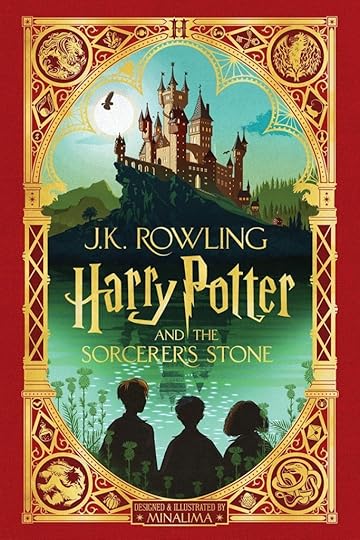
Every October, I pre-order my copy of either Minalima’s or Jim Kay’s illustrated (and pop-up, in the former’s case) edition of the next, retrespective Harry Potter book in the series. This year it is Minalima’s turn, so in anticipation of book three’s publication on October 3, why not revisit the first two books in the series, the Minalima editions of Harry Potter and the Sorcerer’s Stone and Harry Potter and the Chamber of Secrets, by J. K. Rowling. I enjoy these fanciful, pop-up versions.
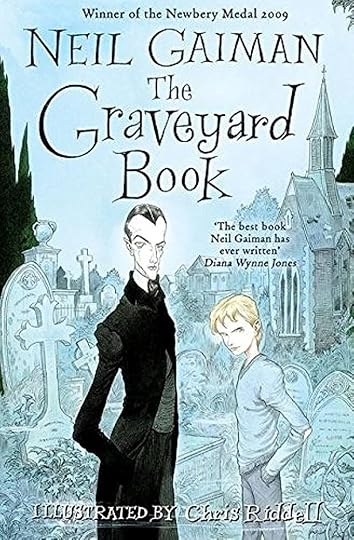
Last month, I read Neil Gaiman’s The Graveyard Book. I have had a roller-coaster experience reading his stuff (probably because each work can be so different from his other work), but I really enjoyed The Graveyard Book, which would suit a wide range of readers and is especially appropriate for Halloween-month reading. (If you are the type, you could begin by reading Rudyard Kipling’s The Jungle Book, which it is based off.)

Strangely, I have heard the name of the following book a few times in the past year. It is strange because I have gone a lifetime reading everything of L. M. Montgomery’s that I could find (over and over), but everyone around me seemed content to read just Anne of Green Gables or maybe Emily of New Moon. I decided last year to re-read her collection of short stories, Among the Shadows, for Halloween, since they are her spooky stories. Now, it seems that I am not the only one. Much more innocent for being written by Montogomery, these will not keep you up late at night, but will give you a crinkly feeling up your spine while also transporting you back to the simpler, more agrarian life of Montgomery’s Prince Edward Island, Canada, in the late 1800s and early 1900s.
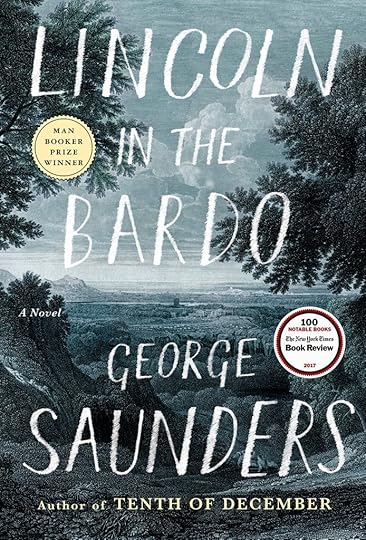
I have also been surprised by the supposed die-back around the most excellent book by George Saunders, Lincoln in the Bardo. It’s probably just that there are so many books published all the time, now, but this book still sits at the top of my all-time faves list. And since it’s an unconventional ghost story taking place in a graveyard where Abraham Lincoln is mourning the loss of his beloved son, it definitely deserves being recalled at Halloween-time.

 Image from Amazon.com
Image from Amazon.comI started reading Dracula by Bram Stoker, last October. I… well, I got bored. Unlike Dr. Jekyll and Mr. Hyde and Jane Austen and much of the Brontes’ writing, I was distracted by the Victorian writing style and the very slow turning of the wheels therein. At any rate, I will finish someday, and in the meantime plenty more people will enjoy reading the classic, written—obviously—before the vampire waters were stirred up with so much tradition. I believe I shall try to finish reading it this year as an audiobook. I am a captive audience while driving in the car.
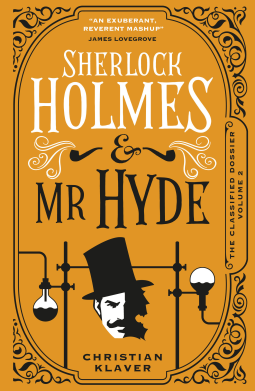 Image from Amazon.com
Image from Amazon.comI will also be reading—one hundred per cent for sure—Sherlock Holmes & Mr. Hyde by Christian Klaver. It is the second book in the Classified Dossier series of Holmes mashups with classic monster stories. (The first book was a mashup with Dracula, titled Sherlock Holmes & Count Dracula.) The reason I am sure to read this is that I have been sent an ARC and have promised to review. This book caught my eye because I am a Sherlock Holmes fan, it is nigh on Halloween, and Klaver has some pretty good ratings elsewhere. It should be a fun time, anyhow.
 Image from Barnes & Noble
Image from Barnes & NobleAs I mentioned above, Minalima will release its most recent addition to the Harry Potter series—an illustrated, pop-up Harry Potter and the Prisoner of Azkaban (J. K. Rowling)—on October 3. I will, no doubt, be procuring my copy ASAP, or at the very least, making someone gift it to me for Christmas. It is a collector’s edition kind of thing, but Minalima’s books are so much fun… artistic, whimsical, beautiful, and special, a toy for grown-ups or a great way to read the books with a child (though I would not recommend a child read all the way through the series while still a child, but that’s a different blog).
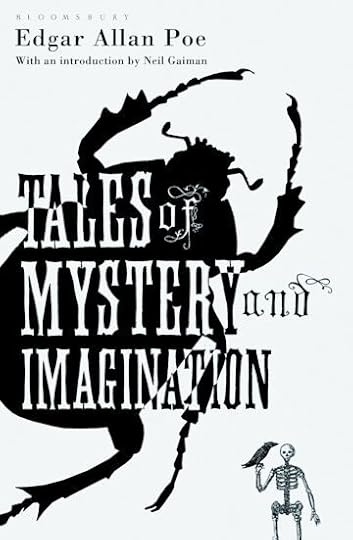
I have read some Edgar Allan Poe, to be sure, but that reading has been random and spread out throughout my life. (Most recently, we read “The Masque of the Red Death” in the homeschool co-op class I taught a couple years back.) One of these years I will get around to reading a collected works of Poe during the Halloween season, and the title I have on my TBR for that is Tales of Mystery and Imagination.
 Image from Amazon
Image from AmazonI have also not read (at least not in a long time) “The Legend of Sleepy Hollow” by Washington Irving. You may or may not know that this is a short story, not a novel. If it isn’t already somewhere on your bookshelf (in some anthology or other), then perhaps the best place to read it would be the original compilation which contained it, The Sketch Book of Geoffrey Crayon, which also goes by the title The Legend of Sleepy Hollow and Other Stories and is credited as the start of the American gothic story. The short story can be purchased as a stand-alone volume, as well, just—as always with classics—buyer beware of cheap, poorly-done versions in the market (due to it being in the public domain).

I am busy, lately, revising the first book of a YA fantasy trilogy, and in that book another book has a prominent cameo. That book is the graphic novel The Sandman, volume 1, Preludes & Nocturnes, by Neil Gaiman (and Sam Keith). Published in 1993, the series would grow to 10 volumes, but I am just going to start with reading the first one. It’s research. And it just so happens to be frequently ranked as one of the best graphic novels of all time. (Technically, The Sandman was a comic book series that ran from 1989-1996 and went to 75 issues, then was re-packaged as graphic novels.)

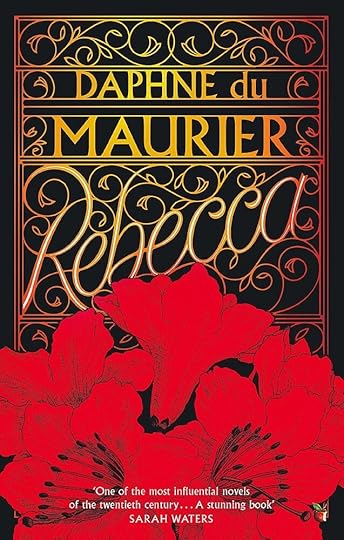
I am a bit of a lightweight when it comes to spooky reading, but two creepy books have caught my attention for years: The Picture of Dorian Gray by Oscar Wilde and Rebecca by Daphne de Maurier. While Dorian Gray is gothic horror, Rebecca is gothic romance, but I imagine both of them might give me the willies. They both call to me as October reads.
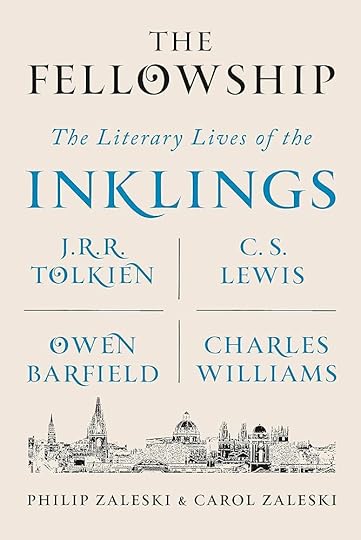
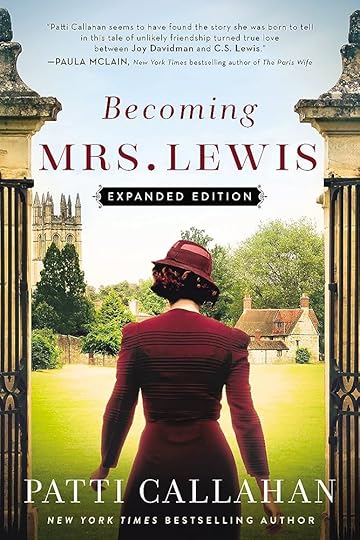
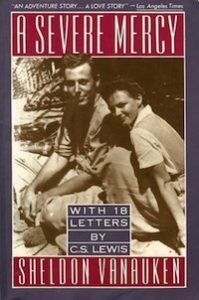
I’ve been seeing a strange trend on the book tables in bookstores, lately, and that is an interest in C. S. Lewis and/or his contemporaries (which include J. R. R. Tolkien). Now, I have an enduring interest in C. S. Lewis, but I have rarely seen this play out in the conventional bookstore (except for perhaps when the Narnia movies were released or when a random bookseller understood that Till We Have Faces is a must-read). I now have three books that fit this trend, two of them recommended recently by bookstores: The Fellowship: The Literary Lives of the Inklings by Philip and Carol Zaleski (2016), Becoming Mrs. Lewis by Patti Calahan (2020), and A Severe Mercy by Sheldon Van Auken (about Lewis sort of obliquely, 1977). In the spirit of good trends, this would make an interesting trilogy to read interspersed with Lewis’s (and others’) work (The Chronicles of Narnia, The Screwtape Letters, Mere Christianity, The Lord of the Rings, Out of the Silent Planet…), perhaps watching Shadowlands (1985) and Tolkien (2019).

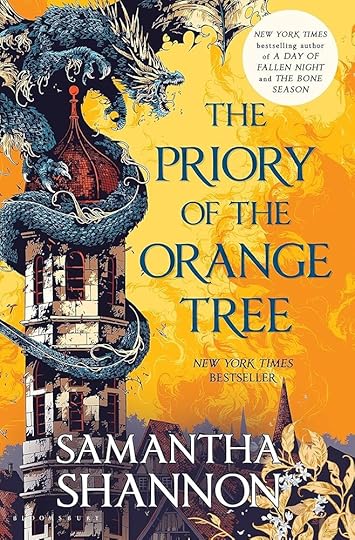
Another two books that have been calling to me from the bookshelves are A Winter’s Promise, the first book of the Mirror Visitor Quartet by Christelle Dabos (2018) and The Priory of the Orange Tree, the first book of the still-growing Roots of Chaos series (which also has a #0 prequel) by Samantha Shannon (2019). I guess I have a thing for big (or, in the second case, giant) fantasy books with sleek, new covers, hanging out on shelf-ends and book tables. Well-rated, I am hoping to be as blown away as I was by Leigh Bardugo’s Six of Crows, last year.
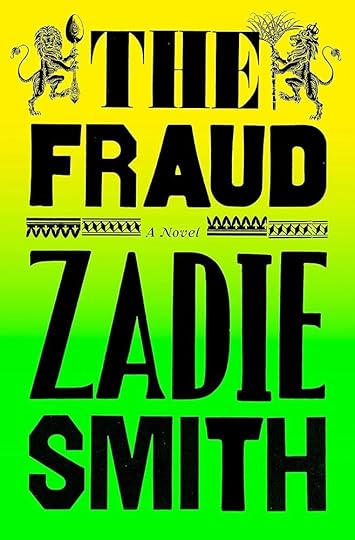 Image from Amazon
Image from AmazonA super-new book that I am looking forward to with anticipatory glee is Zadie Smith’s The Fraud. As is much of the book world. It dropped in September, and though anything Smith writes gets a lot of attention, I am especially excited for her amazing writing abilities to take us in a slightly new direction with a historical crime novel. The 1990s and the Victorians are hot right now, and I am totally on board for all of it.
 Image from Amazon.com
Image from Amazon.comHow Far to the Promised Land: One Black Family’s Story of Hope and Survival in the American South by Esau McCaulley is another book that came out in September, and another title I heard chatted up (with interview) on one of my favorite podcasts. I was sold by the enthusiasm of the interviewer and also by what McCaulley had to say for the book.
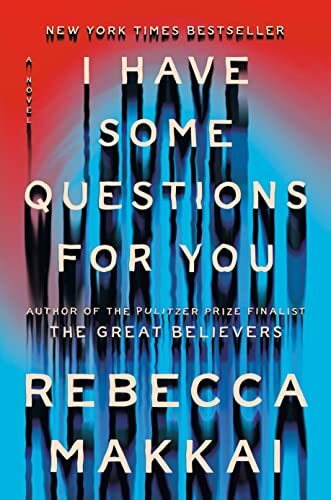 Image from Amazon.com
Image from Amazon.comLastly, for no particular reason, I have my eye on I Have Some Questions for You by Rebecca Makkai. It caught my eye on a list of most anticipated books of 2023 because I subscribe to Makkai’s newsletter after a writing friend strongly recommended it. Then the description hooked me good: it’s a “literary mystery,” and I am always way excited about books that blend genre-writing with amazing language (like, hopefully, The Fraud, see above). It is, I sincerely hope, what will be said about my work.



The best books that I read in September are The Guernsey Literary and Potato Peel Pie Society by Mary Ann Shaffer and Annie Barrows, and The Graveyard Book by Neil Gaiman. Click on the links for those reviews, but these two very different books both surprised me out of almost nowhere, though both of them are titles I “should” have gotten around to earlier. As always.

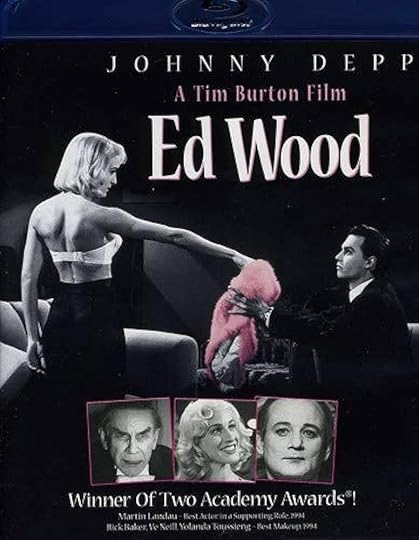
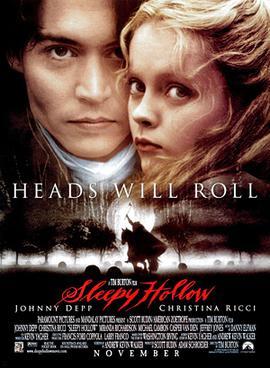
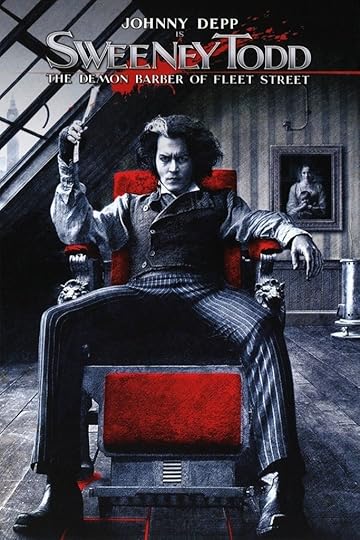


And just for kicks, there are a few Halloween-y movies that I have yet to watch but would like to, and those are Ed Wood (1994), Sleepy Hollow (1999), Sweeny Todd (2007), Little Shop of Horrors (1986, at least since I was like a teenager), and The Dark Tower (2017). (Note: there will not be new installments of Wednesday or Stranger Things, due to the WGA and SAG strikes. Next year in October?… Or 2026 for Stranger Things.)

As for my usual Halloween recommendations, I am always game for a re-read of the Harry Potter series, especially in the fall. You could take it one further and read an illustrated edition (up until their current availability), like Jim Kay’s (currently at book five with Bloomsbury looking for a new illustrator for the last two) or Minalima (currently at book three). It’s not too late to get on the couple-year-old bandwagon and high you a copy of Thea James’ Cooking for Wizards, Warriors, and Dragons. Then there’s always The Witches (Roald Dahl), The Hound of the Baskervilles (Sir Arthur Conan Doyle), Frankenstein (Mary Shelley), the Twilight saga (Stephenie Meyer, which I often recommend despite it’s less-than-literary writing style), Miss Peregrine’s School for Peculiar Children (Ransom Riggs), Tuck Everlasting (Natalie Babbitt), Grimm’s Fairy Tales (the Brothers Grimm), A Snicker of Magic (Natalie Lloyd), and these kids books: The Ghost Eye Tree (Bill Martin Jr.), Sideways Stories from Wayside School (Louis Sachar), The Stranger and The Mysteries of Harris Burdick (Chris Van Allsberg), A Series of Unfortunate Events series (Lemony Snickett), My Teacher Is an Alien (Bruce Coville) The Monster at the End of This Book (Sesame Street and Jon Stone), and The Berenstein Bears: Trick or Treat (Stan and Jan Berenstein). As for movies, I love re-watching seasonally-appropriate movies, and my usual recommendation for October are Frankenweenie (2012), Beetlejuice (1988), Edward Scissorhands (1990), Alice in Wonderland (2010), The Cloverfield Paradox (2018), 10 Cloverfield Lane (2016), Lost (series, 2004-2010), The Nightmare Before Christmas (1993), Coraline (2009), The Corpse Bride (2005), Cloverfield (2008), It’s the Great Pumpkin Charlie Brown (1966), Donnie Darko (2001), the Harry Potter movies (2001-2010), Rear Window (1954), Super 8 (2011), Signs (2002), The Sixth Sense (1999), Hotel Transylvania (2012), The X-Files (series and movies, 1993-2018), The Dark Crystal (1982), Warm Bodies (2013), Murder on the Orient Express (2017), Knives Out (2019), Glass Onion (2022), Ghostbusters (1989 and 2016), The Quiet Place (2018),Scooby Doo (Scooby-Doo Where Are You! 1969-1976 and Scooby-Doo! Mystery Incorporated 2010-2013), Goosebumps (2015), Book of Life (2014), Coco (2017), Save Yourselves! (2020), Nope (2022), and the new Haunted Mansion (2023). And even without new installments, Stranger Things (series, 2016–) and Wednesday (2022–). As for brand-new stuff, A Haunting in Venice looks kind of amazing, but I think too scary for me, and my son is f-reaking out about the upcoming Five Nights at Freddy’s.
September 22, 2023
Book and Movie Review: The Guernsey Literary and Potato Peel Pie Society
 Image from Amazon.com, 2023
Image from Amazon.com, 2023I do not prefer the epistolary form, and I am wary about having two authors on a book cover, as well, so The Guernsey Literary and Potato Peel Pie Society by Mary Ann Shaffer and Anne Barrows had two knocks against it from the beginning. But I had liked the movie. So one knock for. I ended up staying up late to finish the book, which meant I enjoyed the read. It wasn’t all that I hoped for (given the movie), but there were elements to the story being told in the book that were far better than the movie… then again, I had the movie to reference in my mind. If you are a romance reader, this one may fall a little flat, but if you are a historical fiction reader, this will probably be very interesting to you. Cute. Strong female protagonist. Like a Hallmark movie in book form, but much better. Definitely a book-lovers’ book, as well.
Juliet is emerging from a war-torn London and a bombed-out flat, post-WWII. She’s a writer on tour who is wary of her role as a humor writer. She receives a letter from the Isle of Guernsey requesting help to find a book by her favorite author, Charles Lamb, and Juliet begins corresponding with the mysterious Dawsey. She can’t help but be curious about the origin of his club, the Guernsey Literary and Potato Peel Pie Society, which had everything to do with the war, but—the reporter in her can tell—a different version of it. Just as one of America’s most eligible bachelors begins pursuing Juliet, she engages in a furious exchange of letters with Dawsey and the other members of the society and, with her quirky editor and BFF Sydney, uncover a real-life character who may just be her next, serious story. But first, she’ll have to go there and do some research…
This book does seem like something that would have at least crossed my radar in 2007 (and then the movie again in 2018), but it didn’t, that I recall. I missed the boat the first and second time around. The reason it came up now was that the movie showed up as a 99 percent match on some streaming channel I frequent and the title was intriguing and literature-related, so I watched it. As for the book, I didn’t realize there was a book, but I so enjoyed the movie I looked into it. Then, I was on a writing residency and it is part of my tradition to purchase an easy-read book at the local bookstore for nighttime reading. (Some of the books I have chosen in the past were The Song of Achilles and Book Lovers. Often, these books are not only easy reads (and romances), but also literature-related.) So I headed off to the bookstore where they not only still had multiple copies on hand (like 15 years later), but both of the booksellers behind the counter said, “I love that book!”
I was bummed when I saw that there were two authors. I don’t know. Why do I have that prejudice? In this case, it doesn’t really apply, anyway. The reason there are two authors listed is because the author fell ill after finding a publisher, and so got her niece to do the editing and rewrites during her illness and after her death. So the book is really written by Mary Ann Shaffer, but Annie Barrows (otherwise a children’s author) gets credit for fannying it up at the end. (It is also interesting that Shaffer had been wanting to write a “publishable” story for years, and had planned to write a biography of the wife of a polar explorer, which took her to England and, in a roundabout way, almost to Guernsey. Stuck in the airport, she read about the occupation there during WWII, and twenty years later, she had her historical novel in epistolary form.) Speaking of epistolary form, that was the main thing that bummed me out as I started reading. Epistolary novels strike me as choppy and as extra work for the reader. I and my ADHD don’t usually like them, but there are exceptions. After a handful of the letters in Guernsey, I riffled through the entire (short) book and was exasperated to find no exception to the epistolary form, even after Juliet must have gone to the island (which is where I kinda thought the letters would largely stop). But, despite myself, I was still enjoying the story and the characters, so I kept reading.
It was worth it. I don’t know that I would have condoned the epistolary form as, say, Shaffer’s editor. It does make the novel stand apart, a little. More importantly, it helps the reader get into the vibes of 1946, especially as someone in the writing and publishing world. People wrote snail mail letters back then, even telegrams, as a usual mode of communication. The world was small enough that they could be sent great distances relatively quickly, but phones were not as convenient as they are today. In that sense, epistolary makes sense for the history. Especially since that’s how Juliet gets to know the people of the Guernsey Literary and Potato Peel Pie Society. And how she first meet Dawsey. And not only is the history of the occupation on the island really interesting, but the slowness of the time (and lack of communication at all during the war) makes for superior plotting. (It is very difficult to create problems and stakes for characters when they all have smartphones in their pockets.)
I can’t go back and read the book first before watching the movie; what’s done is done. So it may be affecting my read (though I was kept guessing on the things that were changed, which are many). But I really liked the characters. Like really liked them. They were spunky, unique, and ultimately salt of the earth kind of people. (There were bad guys too. I didn’t like them.) The book is also big on confronting the complexity of humans and the gray spaces this leaves, especially in the particulars. On an island where the occupants were living in isolation alongside the occupied, strange relationships and understandings arose. There are moments of straight-up horror, as far as what happened to the Nazi’s prisoners of war and all those people (including Jews) who were rounded up to be used like disposable resources. There are also moments of human connection, compassion, bravery, etc. There is just a lot here, for such a small book. And the twists and turns and suspense will keep you (mostly) guessing. And it is well-written, with both clarity and sparkle.
And before I wrap it up, let’s take a look at Charles Lamb. Charles Lamb is the author whose book sets the main gears of the plot in motion. And he’s mentioned many times in the novel. I honestly didn’t even know whether or not he was real. He is. He was an English poet, essayist, and author who was contemporaries with Coleridge, Wordsworth, Shelley, Byron, etc. His Essays of Elia is actually on my original list of best books in the world, but I am nowhere near getting to it. Perhaps I should read it now that my curiosity is piqued by this book; it seems likely he has had a bit of a revival with Guernsey, since the characters are really into him. As a matter of fact, I think I will go ahead and read some collected prose and his (and his sister’s) Tales from Shakespeare.
So yes, a recommend. It’s a well-done, bright, interesting novel. It will give you something. It’s style and subject matter is perhaps not universally appealing, but for bookish types, those interested in history, or readers of romance, this is a real treat.

“Have you ever noticed that when your mind is awakened or drawn to someone new, that person’s name suddenly pops up everywhere you go? … He thinks that if one cares deeply about someone or something new one throws a kind of energy out into the world, and ‘fruitfulness’ is drawn in” (p116).
“As Seneca says, ‘Light griefs are loquacious, but the great are dumb” (p150).
“Sidney, in these past two or three years, I have become better at writing than living–and I think what you do to my writing” (p159).
“Writers ought to live far inland or next to the city dump, if they are ever to get any work done. Or perhaps they need to be stronger-minded than I am” (p165).
“Elizabeth was my friend, and in that place friendship was all that aided one to remain human” (p178).

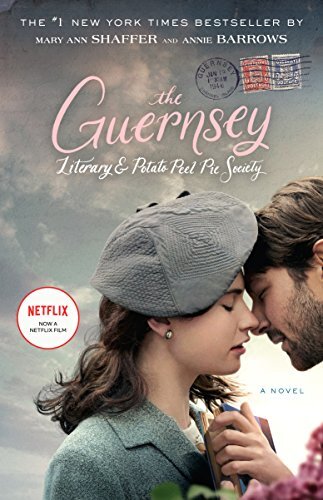 Image from Amazon.com, 2023
Image from Amazon.com, 2023I saw the movie first. I didn’t even know if the book was supposed to be good, but Netflix tried to sell the movie to me because of my previous viewing habits or whatever; yeah, the computers know too much, don’t they? I was also on a writing residency and had discovered that I needed to end my laptop time hours before bed or flop around well after I turned off the light, so I made a line-up of writing- and book-related movies followed by some reading, to cap off the days. Making the movies (or shows) work-related made me feel marginally better about it, but I shouldn’t have felt guilty at all (and that’s another topic entirely).
I like romantic movies. I like some historical movies. This movie is a romance (which is kinda how it was sold to me), but it is also (even moreso) historical and is also a little literary and a little girl-power-y. I would definitely recommend it if anything about that appeals to you, especially if you are interested in WWII-era history (though like Number the Stars it is a slightly different angle on the war compared to what is usually presented). It is a well put-together movie with beautiful landscapes, quaint settings, even fun costuming, let alone a believable and sizzling romance, a mystery that unveils slowly, great acting, and interesting history. I only had one problem with the romance, and that was a complaint I often have—that we don’t see the romantic pair spending enough fun time together (which was the same with the book). We see a lot of awkward in this movie, and we see the attraction, but I’ll talk more about this topic in an upcoming blog. I also thought it was a nice movie for juxtaposing a transactional kind of relationship/marriage versus a more, shall we say spiritual one. And speaking of spiritual, I appreciated that the horrible, batty Christian lady was not foiled by a lovely, secular character but instead her grossness was attributed, basically, to misreading the Bible and not understanding the Christian faith at all. That was refreshing.
All in all, the movie was successful on several levels, including being very cute and interesting. Us literary-type females will especially relate to the main character and her 1940s nerdiness. And the writing part of the movie was okay, but not really a draw. What was particularly successful about this bit was using the writer/researcher as the jumping point for a story that begins by having absolutely nothing to do with her. I wondered how the author even decided that this was the voice to tell this story (looking into it later, I think the voice was close to the author herself and she could more easily see herself as the outside reporter lady), though I am a little tired of having writers play the hero in like half of every book out there. Juliet’s writing life was glamorized, for sure, and we all know I kinda hate that, but at least we get to see her struggle with what her story is and also what kind of life (and privacy) she wants for herself. The next morning, I woke up wondering if the book was any good and that is how we got where we are now. So, yeah, solid recommend, especially for a mixed audience.


